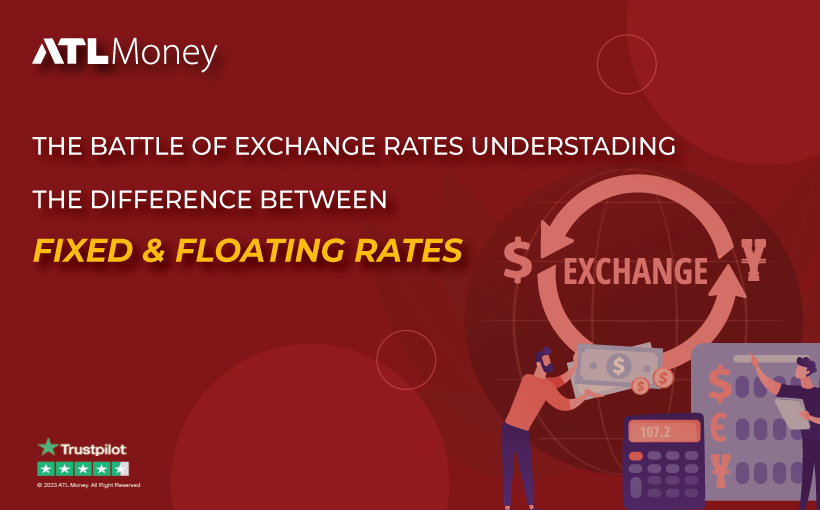As the world becomes more interconnected, discussions about exchange rates become more important. Whether you’re sending money, traveling overseas, or even investing in foreign markets, exchange rates can have a significant impact on your finances. That being said, one of the most important concepts to understand when it comes to exchange rates is the difference between fixed and floating exchange rates.
So, what is the difference between fixed and floating exchange rates? In short, Fixed exchange rates are when the value of a currency is fixed or pegged to the value of another currency while Floating exchange rates are when a currency’s value is determined by the market based on supply and demand.
Let’s dive deeper, shall we?
Fixed Exchange Rates
Fixed exchange rates are usually chosen by countries that want to maintain stability and predictability in their currency’s value. Typically, countries choose to peg their currency to the value of the U.S. dollar, the euro, or gold. Fixed exchange rates are maintained by a country’s central bank buying and selling its own currency in the foreign exchange market.
For example, let’s say that a country wants to peg its currency, the “Cedis” (GHC), to the value of the U.S. dollar. The exchange rate is set to 1 GHC = 1 USD. To maintain this peg, the country’s central bank must be ready to buy and sell its own currency when necessary.
If the value of the GHC starts to rise too much, the central bank will sell GHC on the foreign exchange market, thus increasing the available supply of GHC and lowering its value. Conversely, if the value of the GHC falls too much, the central bank will buy GHC, reducing its supply and increasing its value.
WHAT ARE THE BENEFITS?
Fixed exchange rates clearly have advantages. It gives companies and the government stability and predictability, which makes it simpler to plan and foresee the future. Fixed exchange rates, however, can also be rigid and prevent a nation’s economy from responding to shocks to the economy as fast as it can under a floating exchange rate.
Floating Exchange Rates
Around the world, floating exchange rates are more popular than fixed exchange rates. A currency’s value in a system with a floating exchange rate is decided by the market based on supply and demand. This implies that depending on variables like political unrest, economic news, or trends in the world market, the exchange rate may vary from hour to hour.
For example, let’s use the British pound (GBP). If the demand for GBP rises, its value will appreciate, and the exchange rate will become more favorable to the holder of the currency. Conversely, if the demand for GBP decreases, the value of the currency will decrease, and the exchange rate will become less favorable.
The flexibility of floating exchange rates allows for greater economic adjustment and prevents the economy from becoming overheated, which can lead to inflation. However, this system can also be unpredictable and can lead to significant fluctuations in currency values that are hard to predict.
Which Is Best?
There is no obvious winner when it comes to the “best” exchange rate system; both fixed and floating rates offer benefits and drawbacks. The economic requirements and interests of various nations vary, so what works well for one nation might not work for another.
For instance, a fixed exchange rate regime may be advantageous to a small, open economy to shield it from currency speculation. A larger economy with more varied businesses, on the other hand, can benefit from a floating exchange rate system to take advantage of fluctuations in currency value.
Final Thoughts,
Understanding the distinctions between fixed and variable exchange rates is crucial since exchange rates play a significant role in the world economy. The economic structure, risk tolerance, and long-term goals of a nation are only a few of the numerous variables that influence which exchange rate system is best. It is crucial to monitor currency rates and be ready for variations as you move money, invest, trade, or travel internationally.
